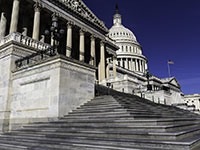On October 5, 2016, the Supreme Court heard oral arguments in US v. Salman, a closely-watched insider trading case in which the Ninth Circuit held that, where the insider had a close personal relationship with the tippee, a remote tippee could be liable for insider trading even in the absence of a pecuniary benefit to the tipper. In so holding, the Ninth Circuit declined to extend the Second Circuit’s 2014 decision in US v. Newman, which held that insider trading requires proof of “a meaningfully close personal relationship that generates an exchange that is objective, consequential, and represents at least a potential gain of a pecuniary or similarly valuable nature.” Early analysis of the arguments in Salman suggests that the Court will, as some have previously predicted , “split the baby” by leaving Salman’s conviction in place while also adopting a rule that would not affect the result in US v. Newman. Given the Court’s decision to grant certiorari in Salman rather than Newman, this result seems all the more likely.
Bassam Salman was convicted of insider trading after trading on information he received from Michael Kara, his brother in law, who in turn received that information from his brother, Maher Kara. Salman was aware that the information came from Maher, a Citigroup banker working on various health care deals and sharing information very openly with his brother. Michael also traded on the information and, although he told Maher that he was not trading, Maher suspected otherwise. Nevertheless, Maher never received any financial or other concrete benefit in the exchange, though there was evidence that he and his brother had a close relationship.
In Salman’s brief, he argued that his conviction was inconsistent with the Court’s seminal 1983 insider trading decision in SEC v. Dirks as interpreted by the Second Circuit in Newman: that insider trading requires proof of “at least a potential gain of a pecuniary or similarly valuable nature.” That is, to the extent that Maher offered material, non-public information to his brother in violation of his confidentiality obligations to his employer, that activity did not violate insider trading laws because Maher did not receive anything concrete in exchange.
From the outset of oral argument, several justices were noticeably skeptical of Salman’s arguments. Justices Ruth Bader Ginsberg and Anthony Kennedy questioned whether Salman’s conviction was just analogous to standard accomplice liability. Justice Kennedy observed that where the tippee does the trading and benefits thereby, as in Salman’s case, the tippee is really the recipient of the “gift” of the tip and by traditional analysis is an accomplice to the tipper’s wrongdoing.
In addition, several justices repeatedly went back to Dirks, in which the Court said that it might be possible to infer the required personal benefit “when an insider makes a gift of confidential information to a trading relative or friend.” As Justice Kennedy observed, Dirks suggested that “there’s a benefit in making a gift,” even if there is no pecuniary exchange. Justices Elena Kagan and Stephen Breyer both observed that Salman’s suggested approach would be a significant departure from most courts’ interpretations of the original Dirks holding. Justice Kagan noted that Dirks seemed to indicate that “it’s not only about when there’s a quid pro quo from the tippee to the tipper, but when the tipper makes a gift to the tippee, and in particular a relative or friend.” Justice Breyer noted outright that if the court embraced Salman’s approach, it was “really more likely to change the law that people have come to rely upon than it is to keep to it.”
The government, by contrast, had urged that there was no conflict among the reasoning upholding Salman’s conviction, SEC v. Dirks, or US v. Newman. The government urged that Michael and Maher had the kind of “meaningfully close personal relationship” that was not present in Newman, a case that involved several levels of remote tippees, none of whom had particularly close friendships much less a family relationship as in Salman. By this logic, the result in Salman was entirely consistent with both Dirks and Newman because the “personal relationship” was sufficiently different and satisfied the precedent established by Dirks.
When the government lawyer took the podium, the justices continued to pose challenging questions, but many justices signaled an apparent belief that the government’s position was more acceptable. Some justices did seem concerned that under the government’s proposed rule, non-relatives or non-friends might be swept into liability, but Deputy Solicitor General Michael Dreeben seemed ready to concede some ground on that front. Toward the end of the argument, Justice Kagan asked whether the court could “separate out that strange, unusual, hardly-ever-prosecuted situation” of non-friends or non-relatives facing liability and Dreeben said he would be “fine with that.” As described above, his response may open the door for the Court to uphold Salman’s conviction while leaving Newman unchanged.







